By Paul Whitelock
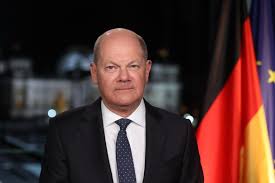 Chancellor Olaf Scholz (SDP – The German Socialist Party) sacked his finance minister Christian Lindner (FDP – The German Liberal Party) yesterday evening, Wednesday 6 November.
Chancellor Olaf Scholz (SDP – The German Socialist Party) sacked his finance minister Christian Lindner (FDP – The German Liberal Party) yesterday evening, Wednesday 6 November.
German Chancellor Olaf Scholz [Photo courtesy of El Mundo]
Subsequently Lindner withdrew his fellow MdBs (MPs) from the coalition government, leaving the remaining two partners, the SDP and Bündnis 90/Die Grünen (The Green Party) in a minority situation.
This unexpected move has thrown Europe’s largest economy into political disarray and could lead to snap elections in March.
Breaking news
The German government was left on the brink of collapse yesterday after the chancellor, Olaf Scholz, unexpectedly sacked his finance minister, Christian Lindner (FDP).
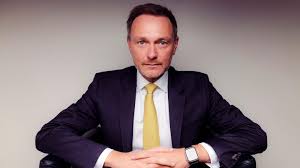 Lindner was thrown out of the three-way coalition of socialists, greens and liberals during a meeting of high-level government members on Wednesday evening. This followed months of bitter infighting that has contributed to the administration’s growing unpopularity.
Lindner was thrown out of the three-way coalition of socialists, greens and liberals during a meeting of high-level government members on Wednesday evening. This followed months of bitter infighting that has contributed to the administration’s growing unpopularity.
Government insiders had suggested Donald Trump’s electoral victory would focus minds in Berlin on a new kind of political future. Not the case, it would seem.
Christian Lindner [Photo courtesy of Stern]
Hours after Lindner’s sacking, the FDP withdrew the rest of its ministers from the cabinet, spelling the end of the beleaguered and unpopular three-way coalition.
Scholz addresses the nation
In a televised address to the nation, Chancellor Scholz said that he will seek a vote of confidence in January 2025 that would pave the way for early elections by March.
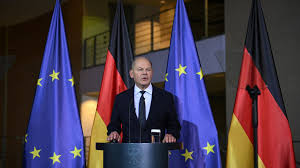 Scholz said he had offered Lindner a plan to bring down energy costs, boost investment and maintain support for Ukraine.
Scholz said he had offered Lindner a plan to bring down energy costs, boost investment and maintain support for Ukraine.
But Lindner had shown “no willingness” to accept it, Scholz said.
“The situation is serious,” Scholz added. “There is war in Europe, tensions are increasing in the Middle East. At the same time, our economy is stagnating.”
Olaf Scholz Press Conference [Photo: The Objective]
He said: “We need to invest considerably more in our defence and in the Bundeswehr (armed forces), especially now, after the outcome of the USA elections.”
Scholz made little effort to hide his frustration, accusing Lindner of egotism, refusing to compromise and using “small-minded, party-political tactics” at a time of growing insecurity.
The chancellor apologised to the German people, saying he “would have liked to have spared you this difficult decision, especially in times like these when uncertainty is growing”, a direct reference to the USA presidential election.
What caused this drastic action?
Lindner, 45, is the head of the pro-business FDP, which on Friday delivered a controversial 18-page ultimatum calling on the government to radically redraw its budget plans for next year.
He had repeatedly warned of “an autumn of decisions” as difficult budget talks have loomed.
His sacking is likely to lead to snap elections in March, six months ahead of schedule.
Scholz announce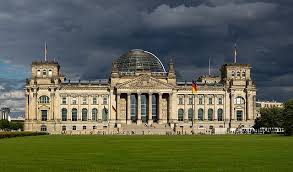 d his intention to hold a vote of confidence in the Bundestag (Lower House) in mid-January and suggested that – depending on the outcome of that –elections could be held in March.
d his intention to hold a vote of confidence in the Bundestag (Lower House) in mid-January and suggested that – depending on the outcome of that –elections could be held in March.
After Scholz’s announcement, a clearly fuming Lindner accused the chancellor of having “long failed to recognise that our country needs a new economic awakening” and of “trivialising the economic concerns of citizens”.
German Parliament, Berlin [Photo: Wikipedia]
The FDP currently stands at about 4% in the polls – below the threshold needed to gain a place in parliament – but he made little secret of his plans to campaign for a place in a new government. “We remain ready to take responsibility for this country and we will fight to do the same in another government next year,” he said.
What is likely to happen next?
The fallout is expected to plunge Germany into a prolonged period of uncertainty at a time when European leaders have been trying to pull together in the face of challenges including a possible trade war with the USA.
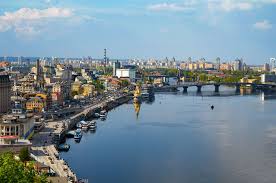 As the second biggest backer of Ukraine after the USA, Germany also faces concerns that it will be left to take on a far bigger share of the war effort if President Trump carries out his threat to reduce support for Kyiv.
As the second biggest backer of Ukraine after the USA, Germany also faces concerns that it will be left to take on a far bigger share of the war effort if President Trump carries out his threat to reduce support for Kyiv.
In a poll by Forsa published on Wednesday, 82% of Germans said they had no faith that the government would fix Germany’s economic crisis before the federal election, which had been scheduled for next September.
Kyiv, capital of Ukraine [Photo: Britannica]
© Paul Whitelock
Acknowledgements:
The Guardian
Frankfurter Allgemeine Zeitung
Kate Connolly
Wikipedia
Photos:
Britannica
El Mundo
Stern
The Objective
Wikipedia
Tags:
Britannica, Bündnis 90/Die Grünen, Christian Lindner, El Mundo, Forsa, Frankfurter Allgemeine Zeitung, FDP, German Liberal Party, Germany, German Socialist Party, Germany, Green Party, Guardian, Kate Connolly, Kyiv, Olaf Scholz, Paul Whitelock, President Trump, Scholz, SPD, Stern, The Objective, Trump, Ukraine, USA, Wikipedia